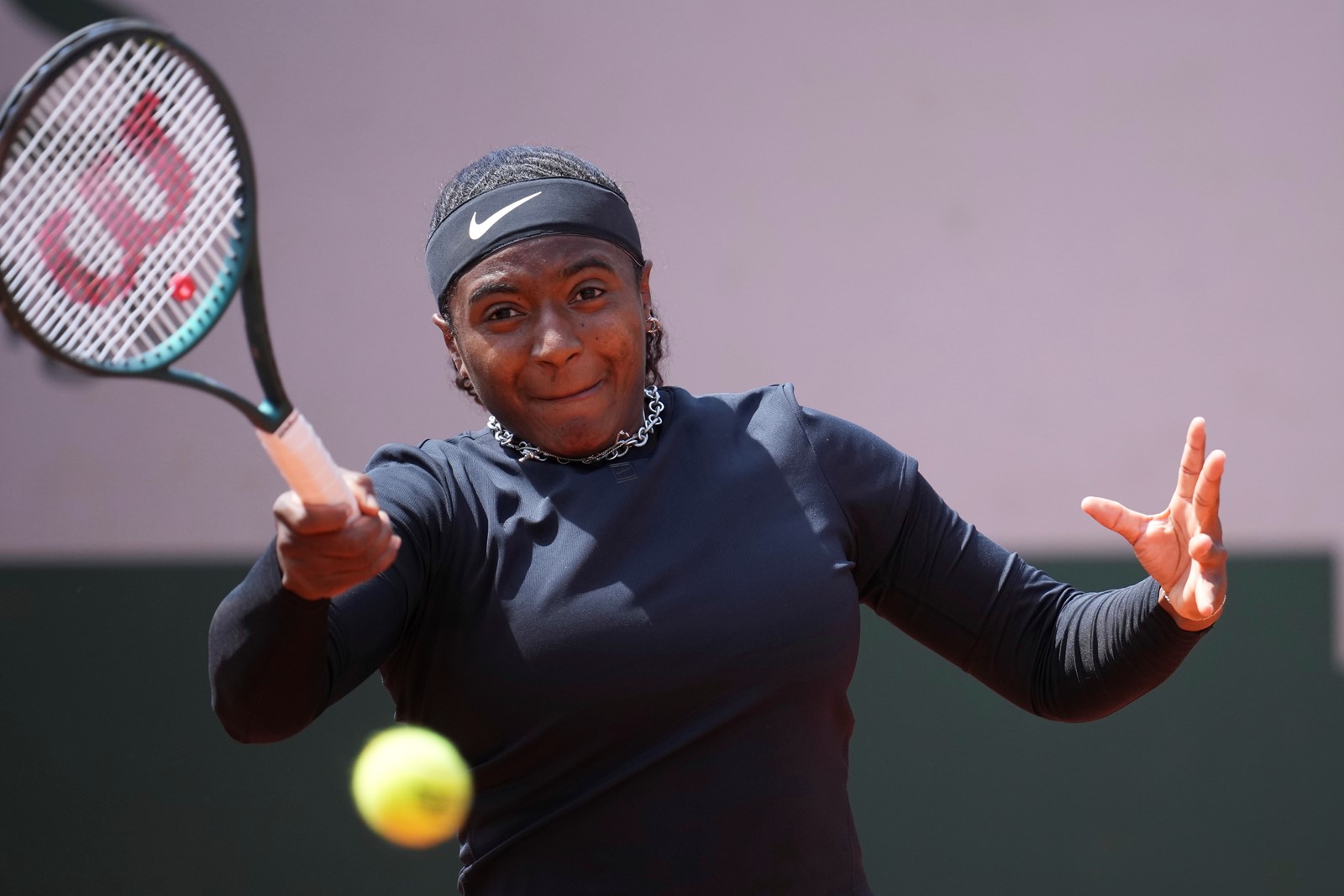
Spoiled in recent years by the likes of Coco Gauff and Carlos Alcaraz and informed by teenage prodigies dotting the sport’s history, tennis fans are accustomed to stories of near-instant success. Gauff became a star at 15 with a fairy-tale run to the round of 16 at Wimbledon. Alcaraz made it to the quarterfinals of the fourth major tournament he ever played, the U.S. Open, then won the title the year after that.
But the reality for the majority of players is that type of success doesn’t come quickly. If titles, endorsements and life-changing prize money come at all, they come after years of grinding out a modest living in a sport that demands global travel and offers zero job security.
How satisfying, then, when hardworking members of the tennis proletariat finally get their due.
Hailey Baptiste is having her moment. The 23-year-old from D.C. defeated Spain’s Jessica Bouzas Maneiro, 7-6 (7-4), 6-1, on Saturday at the French Open, winning in her first appearance in the third round of a Grand Slam tournament after years of toil in tennis’s lower ranks.
If that doesn’t make her easy enough to root for, how about this? A win for Baptiste also is a win for another D.C.-area tennis family — Frances Tiafoe’s twin brother, Franklin, coaches Baptiste.
Baptiste’s reward is a round-of-16 matchup with seventh-seeded Madison Keys, the reigning Australian Open champion. Their meeting Monday might sound like rounds of cannons going off, even on the slow red clay of Roland Garros. Baptiste doesn’t hit quite as hard as Keys — few do — but she is a classic American power player, versatile and strong as oak. She drives her entire body into each groundstroke, but she’s athletic and quick enough to recover in time for the next shot, even on clay, which has a demoralizing effect. Bouzas Maneiro spent much of Saturday’s second set hanging her head in disbelief at Baptiste’s court coverage.
Baptiste and Keys are part of a large group of Americans heading deep into the French Open. Amanda Anisimova, Jessica Pegula and Gauff also are still alive on the women’s side. Among the men, three Americans — Tommy Paul, Ben Shelton and Frances Tiafoe — are through to the round of 16 for the first time in 30 years, since Andre Agassi, Michael Chang and Jim Courier stalked the dirt.
It’s certainly nice to have friends still hanging around the locker room in the second week of a Grand Slam. But for Baptiste, there won’t be any issues shelving her emotions when she faces Keys.
“I mean, I feel like we don’t have friends on the court, right?” Baptiste said with a grin after her match.
That ruthless mentality is hard-won. Off the court, Baptiste comes from the Tiafoe school of approaching professional tennis. Like the 27-year-old she calls her “big brother” — the two trained as youngsters at Junior Tennis Champions Center in College Park, Maryland, and their families are close — talking with Baptiste is like talking with a friend, not a professional athlete being interviewed on TV. She is candid and relaxed, and she peppers jokes into reflections on her career.
But on the court, a winding career path has wrought clarity and focus.
She spent more than four years grinding through a pro career without endorsement deals, meaning she was self-funded and, like many players outside of the top 150 or so, shared hotel rooms at tournaments, bought economy tickets on budget airlines and had no consistent coach. She was often left to dissect wins and losses and construct game plans by herself, so progress wasn’t always steady despite her natural talent.
She finally cracked the top 100 last year and teamed with Franklin Tiafoe for this year’s Australian Open. Baptiste is also working with a secondary coach, Eric Hechtman, whose former players include Venus Williams. They have helped streamline her game and clear her mind.
“It’s super fun. We’re fighting and joking with each other all day — I win every single fight,” Baptiste said of Tiafoe, smiling. “He definitely takes the tension away when I have him there to joke around with, and obviously Eric is a great mentor, kind of helping me put everything together. … It took a little while for me to piece things together, and with the right coach I was able to figure out what the best shots were in the right moment.”
The other propellant Baptiste cites is confidence. She is ranked a career-high 70th and should make a healthy jump whatever the outcome of Monday’s match.
Keys won their past two meetings, but Baptiste knows what it feels like to get a victory against the Grand Slam champion: As a 17-year-old in 2019, she beat Keys in the first round of her hometown tournament, then called the Citi Open.
That was supposed to be Baptiste’s coming-out party in tennis.
She understands now that success isn’t always instant, that some careers wind through the woods for a while before the path appears again.


 PREVIOUS ARTICLE
PREVIOUS ARTICLE
